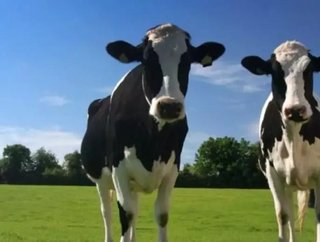Wine Dregs Fed to Cows Cut Emissions 20%

New research has found a good use for the leftover material from wine-making that will benefit both the environment and agriculture. By feeding cows grape marc, or the stems, seeds and skins remaining from making wine, methane emissions decreased by about 20 percent.
Under the Victorian Department of Primary Industries research center, the study also found that the cows produced 5 percent more milk with an increased content of healthy, fatty acids and antioxidants. During the experiment, Australian Holstein dairy cows were fed five kilograms of grape march a day for one month, while another group remained on a diet of conventional fodder. Milk production, composition and methane emissions were then measured by scientists, who believe the study is the first of its kind.
SEE OTHER TOP STORIES IN THE ENERGY DIGITAL CONTENT NETWORK
Customers Rewarded for Choosing Green Energy
ENER-G Wins Technology Provider of the Year Award
December's issue of Energy Digital has gone live!
''I was surprised by the magnitude of the [methane emission] findings, and also happy to see this improvement in the milk fatty acid composition,'' Peter Moate, the department's scientist, told the Sydney Morning Herald. ''We now know that supplementing a dairy cow's diet with dried grape marc increases the healthy fatty acids in milk by more than six times that of standard autumn fodder.”
Researchers say they will continue exploring methods of feeding grape marc to more cows, which has luckily been an easy task thus far. Optimistic, the researchers believe that in experimenting with a number of management strategies and supplements, they may be able to reduce methane emissions by more than 50 percent. Cheers to that!
DOWNLOAD THE ENERGY DIGITAL IPAD APP






